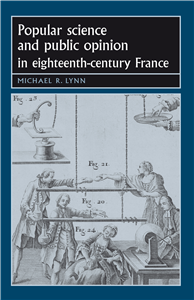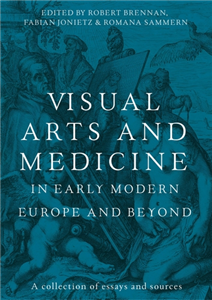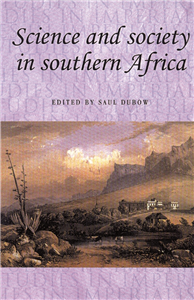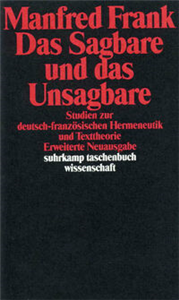Your Search Results
-
Arab Scientific Publishers, Inc.
Arab Scientific Publishers (ASP) publishes award winning books that cater to all ages and interests. The subject matter is wide ranging from drawing and cooking books, to Mayo Clinic references, Microsoft Training Kits, and bestselling novels, targeting children, teenagers, students, adults, and professionals. A r a b S c i e n t i f i c P u b l i s h e r s (ASP) is a fully consolidated commercial Printing and Publishing powerhouse. The company is involved in all activities along the value chain from concept creation to distribution. The company’s proven track record in delivering first-rate publishing and printing services will serve as a catalyst to grow the company into a global digital enterprise. Our vision is that ASP will become a strategic holding structure with international subsidiaries all around the globe.
View Rights Portal
-
Promoted ContentThe ArtsSeptember 2020
Science in performance
Theatre and the politics of engagement
by Simon Parry
This electronic version has been made available under a Creative Commons (BY-NC-ND) open access license. This book is about science in theatre and performance. It explores how theatre and performance engage with emerging scientific themes from artificial intelligence to genetics and climate change. The book covers a wide range of performance forms from Broadway musicals to educational theatre, from Somali drama to grime videos. It features work by pioneering companies including Gob Squad, Headlong Theatre and Theatre of Debate as well as offering fresh analysis of global blockbusters such as Wicked and Urinetown. The book offers detailed description and analysis of theatre and performance practices as well as broader commentary on the politics of theatre as public engagement with science. Science in performance is essential reading for researchers, students and practitioners working between science and the arts within fields such as theatre and performance studies, science communication, interdisciplinary arts and health humanities.
-
Promoted ContentChildren's & YADecember 2023
QuBuild
A guided approach to asking better scientific questions in primary schools
by Lynne Bianchi, Tina Whittaker
This book brings a new classroom approach for primary teachers to teach the explicit knowledge of scientific question-asking. This is an essential skill when children are involved in finding out about the world around them through science enquiry. Challenging the assumption that because children ask lots of questions in science, this automatically leads to meaningful learning of the enquiry curriculum, QuBuild is important for all children developing as scientific thinkers. It outlines an approach to explicitly plan for, practice and develop the craft of scientific question-asking. Unlock your children's science learning potential by exploring the QuBuild Process.
-
 Trusted Partner
Trusted Partner
-
 Trusted Partner
Trusted Partner
-
 Trusted Partner
October 2023
Trusted Partner
October 2023Veganomics
The vegan revolution and its future markets
by Joël Luc Cachelin
— A practical guide on how an entirely vegan society can work — A thought-provoking utopia – exactly what we need right now — By the futurologist and founder of the Wissensfabrik ("Knowledge Factory") with a large network We're on an idyllic, albeit fictional, archipelago in the North Sea. Nobody keeps an animal against its will here, and no one sells the materials obtained from killing an animal. No animals are used in agriculture or for research, beauty and food industries. There are no zoos, and there's no animal testing. No one wears wool or leather. Vegania is entirely vegan. Now Karnivoria wants to follow suit, and asks Vegania for advice: how can an entirely different society work; how is it possible to move away from animal products, and how would this affect the catering and food industries and agriculture? An exciting scientific experiment that Joël Luc Cachelin underpins with linguistic sophistication and scientific expertise in this extraordinary book about the possibilities of a livestock-free society.
-
 Trusted Partner
April 2023
Trusted Partner
April 2023Purveyors to the Court
How politics makes use of science and breaks down because of it
by Klaus Ferdinand Gärditz
— Astute analysis of the relationship between politics and the natural sciences — Danger of undermining democratic processes Today, political decision-making processes are closely intertwined with processes of scientific knowledge generation. The natural sciences play a central role in politics. This became particularly clear during the corona pandemic and in the regular press conferences in which politicians largely narrowed their course to scientific findings. The consequence of this maxim is that the rationalisation of politics is accompanied by a politicisation of science. Science is exploited, and sometimes allows itself to be exploited. In his equally brilliant and sharp analysis, Klaus Ferdinand Gärditz explains the consequences of this development for the democratic process in particular.
-
 Trusted Partner
Humanities & Social SciencesFebruary 2018
Trusted Partner
Humanities & Social SciencesFebruary 2018Popular science and public opinion in eighteenth-century France
by Michael Lynn, Joseph Bergin, Penny Roberts, Bill Naphy
In this book, Michael R. Lynn analyses the popularisation of science in Enlightenment France. He examines the content of popular science, the methods of dissemination, the status of the popularisers and the audience, and the settings for dissemination and appropriation. Lynn introduces individuals like Jean-Antoine Nollet, who made a career out of applying electric shocks to people, and Perrin, who used his talented dog to lure customers to his physics show. He also examines scientifically oriented clubs like Jean-François Pilâtre de Rozier's Musée de Monsieur which provided locations for people interested in science. Phenomena such as divining rods, used to find water and ores as well as to solve crimes; and balloons, the most spectacular of all types of popular science, demonstrate how people made use of their new knowledge. Lynn's study provides a clearer understanding of the role played by science in the Republic of Letters and the participation of the general population in the formation of public opinion on scientific matters.
-
 Trusted Partner
European historyOctober 2013
Trusted Partner
European historyOctober 2013Popular science and public opinion in eighteenth-century France
by Michael R. Lynn
Now available in paperback, Michael R. Lynn's book analyses the popularisation of science in Enlightenment France. He examines the content of popular science, the methods of dissemination, the status of the popularisers and the audience, and the settings for dissemination and appropriation. Lynn introduces individuals like Jean-Antoine Nollet, who made a career out of applying electric shocks to people, and Perrin, who used his talented dog to lure customers to his physics show. He also examines scientifically oriented clubs like Jean-François Pilâtre de Rozier's Musée de Monsieur which provided locations for people interested in science. Phenomena such as divining rods, used to find water and ores as well as to solve crimes; and balloons, the most spectacular of all types of popular science, demonstrate how people made use of their new knowledge. Lynn's study provides a clearer understanding of the role played by science in the Republic of Letters and the participation of the general population in the formation of public opinion on scientific matters.
-
 Trusted Partner
The ArtsFebruary 2026
Trusted Partner
The ArtsFebruary 2026Visual arts and medicine in early modern Europe and beyond
A collection of essays and sources
by Robert Brennan, Fabian Jonietz, Romana Sammern
This book opens up new perspectives on the relationship between art, medicine, and science in late-medieval and early modern Europe. Looking beyond the traditional nexus of art, anatomy, and optics, the volume sheds light on a broader array of connections between artists and physicians: collaborations between painters and doctors on colour charts, handwork skills common to sculptors and surgeons, the transmission of art theory through medical texts long before the emergence of art writing itself as an independent genre, and the kinship of medical diagnosis with early modes of connoisseurship. Reconfiguring the histories of art, medicine, and science, the book also traverses conventional boundaries between physical and mental health, religious and medical modes of healing, menial and exalted forms of knowledge and labour, as well as vernacular and scientific understandings of human difference, including gender, race, and neurodiversity.
-
 Trusted Partner
Science & MathematicsFebruary 2020
Trusted Partner
Science & MathematicsFebruary 2020The freedom of scientific research
by Simona Giordano, John Harris, Lucio Piccirillo, Rebecca Bennett
-
 Trusted Partner
Literature & Literary StudiesOctober 2017
Trusted Partner
Literature & Literary StudiesOctober 2017Botany, sexuality and women's writing, 1760–1830
From modest shoot to forward plant
by Sam George
In this fascinating study, Samantha George explores the cultivation of the female mind and the feminised discourse of botanical literature in eighteenth-century Britain. In particular, she discusses British women's engagement with the Swedish botanist, Carl Linnaeus, and his unsettling discovery of plant sexuality. Previously ignored primary texts of an extraordinary nature are rescued from obscurity and assigned a proper place in the histories of science, eighteenth-century literature, and women's writing. The result is groundbreaking: the author explores nationality and sexuality debates in relation to botany and charts the appearance of a new literary stereotype, the sexually precocious female botanist. She uncovers an anonymous poem on Linnaean botany, handwritten in the eighteenth century, and subsequently traces the development of a new genre of women's writing - the botanical poem with scientific notes. The book is indispensable reading for all scholars of the eighteenth century, especially those interested in Romantic women's writing, or the relationship between literature and science.
-
 Trusted Partner
Humanities & Social SciencesFebruary 2017
Trusted Partner
Humanities & Social SciencesFebruary 2017Conquering nature in Spain and its empire, 1750–1850
by Helen Cowie, Andrew Thompson, John M. MacKenzie
This book examines the study of natural history in the Spanish empire in the years 1750-1850. During this period, Spain made strenuous efforts to survey, inventory and exploit the natural productions of her overseas possessions, orchestrating a serries of scientific expeditions and cultivating and displaying American fauna and flora in metropolitan gardens and museums. This book assesses the cultural significance of natural history, emphasising the figurative and utilitarian value with which eighteenth-century Spaniards invested natural objects, from globetrotting elephants to three-legged chickens. It considers how the creation, legitimisation and dissemination of scientific knowledge reflected broader questions of imperial power and national identity. This book will be of particular interest to scholars and students of Spanish and Latin American History, the History of Science and Imperial Culture
-
 Trusted Partner
Humanities & Social SciencesJune 2009
Trusted Partner
Humanities & Social SciencesJune 2009Science and society in southern Africa
by Andrew Thompson, Saul Dubow, John Mackenzie
This collection, dealing with case studies drawn from South Africa, Zimbabwe, Mozambique and Mauritius, examines the relationship between scientific claims and practices, and the exercise of colonial power. It challenges conventional views that portray science as a detached mode of reasoning with the capacity to confer benefits in a more or less even-handed manner. That science has the potential to further the collective good is not fundamentally at issue, but science can also be seen as complicit in processes of colonial domination. Not only did science assist in bolstering aspects of colonial power and exploitation, it also possessed a significant ideological component: it offered a means of legitimating colonial authority by counter-poising Western rationality to native superstition and it served to enhance the self-image of colonial or settler elites in important respects. This innovative volume ranges broadly through topics such as statistics, medicine, eugenics, agriculture, entomology and botany. ;
-
 Trusted Partner
Humanities & Social SciencesMarch 2017
Trusted Partner
Humanities & Social SciencesMarch 2017Science and society in southern Africa
by Saul Dubow
This collection, dealing with case studies drawn from South Africa, Zimbabwe, Mozambique and Mauritius, examines the relationship between scientific claims and practices, and the exercise of colonial power. It challenges conventional views that portray science as a detached mode of reasoning with the capacity to confer benefits in a more or less even-handed manner. That science has the potential to further the collective good is not fundamentally at issue, but science can also be seen as complicit in processes of colonial domination. Not only did science assist in bolstering aspects of colonial power and exploitation, it also possessed a significant ideological component: it offered a means of legitimating colonial authority by counter-poising Western rationality to native superstition and it served to enhance the self-image of colonial or settler elites in important respects. This innovative volume ranges broadly through topics such as statistics, medicine, eugenics, agriculture, entomology and botany.
-
 Trusted Partner
Humanities & Social SciencesJanuary 2024
Trusted Partner
Humanities & Social SciencesJanuary 2024Dog politics
Species stories and the animal sciences
by Mariam Motamedi Fraser
Do dogs belong with humans? Scientific accounts of dogs' 'species story,' in which contemporary dog-human relations are naturalised with reference to dogs' evolutionary becoming, suggest that they do. Dog politics dissects this story. This book offers a rich empirical analysis and critique of the development and consolidation of dogs' species story in science, asking what evidence exists to support it, and what practical consequences, for dogs, follow from it. It explores how this story is woven into broader scientific shifts in understandings of species, animals, and animal behaviours, and how such shifts were informed by and informed transformative political events, including slavery and colonialism, the Second World War and its aftermath, and the emergence of anti-racist movements in the twentieth and twenty-first centuries. The book pays particular attention to how species-thinking bears on 'race,' racism, and individuals.
-
 Trusted Partner
Humanities & Social SciencesJanuary 2013
Trusted Partner
Humanities & Social SciencesJanuary 2013The Black Death
by Rosemary Horrox
This series provides texts central to medieval studies courses and focuses upon the diverse cultural, social and political conditions that affected the functioning of all levels of medieval society. Translations are accompanied by introductory and explanatory material and each volume includes a comprehensive guide to the sources' interpretation, including discussion of critical linguistic problems and an assessment of recent research on the topics covered. From 1348 to 1350 Europe was devastated by an epidemic that left between a third and one half of the population dead. This source book traces, through contemporary writings, the calamitous impact of the Black Death in Europe, with a particular emphasis on its spread across England from 1348 to 1349. Rosemary Horrox surveys contemporary attempts to explain the plague, which was universally regarded as an expression of divine vengeance for the sins of humankind. Moralists all had their particular targets for criticism. However, this emphasis on divine chastisement did not preclude attempts to explain the plague in medical or scientific terms. Also, there was a widespread belief that human agencies had been involved, and such scapegoats as foreigners, the poor and Jews were all accused of poisoning wells. The final section of the book charts the social and psychological impact of the plague, and its effect on the late-medieval economy.
-
 Trusted Partner
February 2023
Trusted Partner
February 2023Tobias Mayer
or measuring the earth, sea and sky
by Thomas Knubben
—300th birthday of Tobias Mayer in February 2023 — The rediscovery of a great scientist — A chapter in the fascinating history of science The story of Tobias Mayer's life (1723 to 1762) is that of a child prodigy and orphan who became a pioneer of the Enlightenment as a cartographer, mathematician, physicist and astronomer. Having never been to university, at the age of 28 he was appointed a professor in Göttingen by the Elector of Hanover and King of England. He revolutionised cartography with his zeal and skill, helping sailors to find the right path across the seas and providing people with the firstever clear view of the moon. 17th February 2023 marks the 300th anniversary of the birth of Tobias Mayer. High time to recall this prototype of a scientist.
-
 Trusted Partner
June 2024
Trusted Partner
June 2024Suche und finde! Einhörner
Wimmelbuch ab 2 Jahren mit 66 spannenden Suchaufgaben zum Entdecken
by Isabelle Metzen, Ulla Bartl
Komm mit ins Land der Einhörner! Gemeinsam mit Feen und anderen Zauberwesen toben die magischen Pferde durch den verwunschenen Garten, picknicken im Zauberwald, feiern ein Mondscheinfest und erleben noch so viel mehr! Es gibt allerhand zu entdecken, darum Augen auf und losgesucht! Spannende und magische Wimmelszenen Erste spielerische Verknüpfung von Bild und Sprache Beliebte Kinderthemen: Einhörner und Feen 6 Suchobjekte auf jeder Doppelseite für jede Menge Suchspaß Trainiert Schlüsselkompetenzen wie Konzentration und Merkfähigkeit Regt die Fantasie und den Spieltrieb an Verschafft garantierte Erfolgserlebnisse Praktisches Handtaschenformat: Ideal auch für unterwegs Zum gemeinsamen Anschauen oder allein Beschäftigen Farbenfrohe und animierende Bilder mit vielen Details zum Entdecken
-
 Trusted Partner
January 2024
Trusted Partner
January 2024Suche und Finde! - In der Stadt
Wimmelbuch ab 2 Jahren mit 66 spannenden Suchaufgaben zum Entdecken
by Joachim Krause, Lila L. Leiber
Viel zu entdecken in der Stadt! Heute gehen wir in die Stadt. Was es da alles zu sehen gibt! Am Bahnhof fahren jede Menge Züge ein und aus, auf dem Markt wird frisches Gemüse angeboten, im Kaufhaus lockt ein Ausverkauf und einfach überall sind Menschen unterwegs. In der Stadt ist wirklich viel los! Was es wohl noch so zu entdecken gibt? Ein fröhlich-bunter Wimmelspaß zum Suchen, Entdecken und Spaß haben!
-
 Trusted Partner
March 1980
Trusted Partner
March 1980Das Sagbare und das Unsagbare
Studien zur französischen Hermeneutik und Texttheorie
by Manfred Frank
Auf den Feldern der literarischen Hermeneutik und der Texttheorie sucht Manfred Frank eine geduldige und kritische Auseinandersetzung mit den Theorien der französischen Semiologen. Er vollzieht die kritische Wendung insbesondere Lacans und Derridas gegen die Subjektphilosophie der Hermeneutik ebenso nach wie ihre Einwände gegen den Fetischismus der Regel- und Konventionsmodelle der angelsächsischen Philosophie, hier: der von Austin und Searle entwickelten Sprechakttheorie. Im Rückgriff auf Schleiermacher und Humboldt freilich zeigt er, daß es keinen kontinu-ierlichen übergang zwischen der Ebene des Zeichensystems und seiner jeweils singulären Anwendung geben kann. Wenn irgendwo, dann ist in dieser Kluft der Ort des Subjekts. Seine (unscheinbar gewordene) Leistung droht allerdings der Vergessenheit und »dem Unsagbaren« an-heimzufallen, wenn durch eine tautologische und undialektische Anwen-dung des Wissenschaftsbegriffs nur solche Gebilde als Gegenstände einer »scientific discovery« zugelassen werden, die dem Kriterium der Univer-salität und der Beherrschbarkeit durch Regeln gehorchen. Das individuelle Subjekt fällt durch die Maschen dieses Anspruchs: es degeneriert in die »Idiotie«, wie Frank, auf den Titel von Sartres Flaubert-Studie anspielend, in einem Essay zu dessen hermeneutischer Archäologie des Individuums zeigt.





























